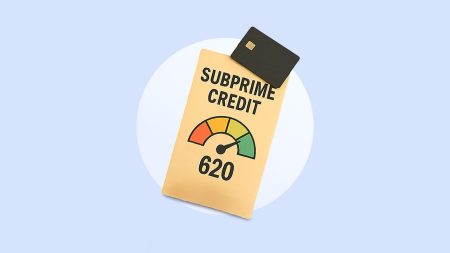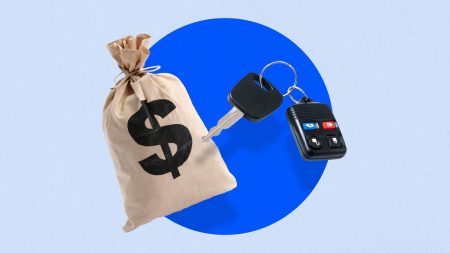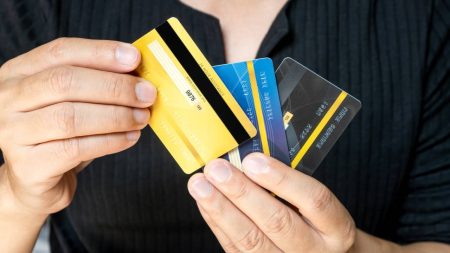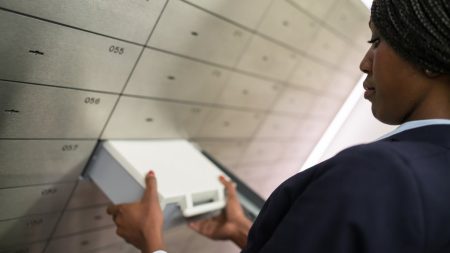It’s an uneventful weekday, and you’re running a few errands during your lunch break. You decide at the last minute to run inside the bank to finally deposit that paper check you’ve had in your pocket for the past month, as well as review your checking account balance and perhaps inquire about opening a money market account. All is quiet.
However, your banking experience takes an unexpected turn when the suspicious-looking customer in front of you passes a note to the teller. The rigid, yet cool, expression on the teller’s face says it all: This is a bank robbery.
When you hear about a bank robbery, some of your immediate questions – outside of how it went down – are likely about the safety of your money: Is my cash safe? What exactly happens to my money if my bank is robbed? Will I be safe if I return to the bank?
A customer and his cash
These are some of the questions real estate agent Luke Wong had after hearing a news report about a robbery at his local Capital One bank in Queens, N.Y. in 2019. Wong, who asked not to use his real name, says he was worried about his money. He also had concerns about his safety.
“My first thoughts were, ‘Is my savings account affected? Will I be able to withdraw cash?’” says Wong. “What if I go to my bank to make a deposit and the robbers come back? I even thought about switching to a different bank.”
Wong’s fears stemmed from the fact that a nearby branch, another Capital One Bank, was robbed that same day. Such shocking news further compounds the already existing anxieties many Americans have about their finances. In Bankrate’s 2024 Money and Mental Health Survey, roughly half (47 percent) of U.S. adults surveyed said money has had a negative impact on their mental health.
Bank robberies, the likes of those portrayed in such heist films as “Bonnie and Clyde,” “Dog Day Afternoon” and “Inside Man,” may be (thankfully) few and far between, but bank robberies do happen. For example, there were 1,112 commercial bank robberies in the U.S. in 2023, according to the FBI’s most recent Bank Crime Statistics report. Roughly $4.7 million was lost that year due to commercial bank robberies. Here’s what you should know if your bank is robbed and what happens to your money.
I’ve been robbed! Now what?
First, and foremost, if your bank is robbed, don’t panic. There are protections in place to ensure your money is safe. You can have peace of mind knowing you won’t be in a situation where you check your bank account and see a zero balance.
Wong says after the robbery, his bank was closed for the day. However, the next day everything was pretty much business as usual. His checking and savings accounts were untouched. Nothing out of the ordinary took place in the aftermath.
“I probably had no reason to worry,” says Wong. “My accounts were fine and nothing notable happened. However, I did toy with the idea of withdrawing some cash and hiding it at home.”
Although it might be tempting to hoard cash in your house, resist the urge. Your money is safer in a bank.
“Not only is your money safe in a bank because of insurance, it’s far safer than in your home,” says Joe Saul-Sehy, creator and co-host of the Stacking Benjamins podcast and author of Stacked: Your Super Serious Guide to Modern Money Management. “Homeowners policies traditionally cover personal property, but actual cash stored in your home is either not covered or capped to a small amount.”
How banks ensure their customers’ money stays safe
Contrary to popular belief, a bank robbery is not covered by Federal Deposit Insurance Corporation (FDIC) insurance. FDIC insurance protects customers in the event of a bank failure, not a robbery. Deposits are insured by the FDIC for up to $250,000 per depositor, per insured bank for each account type if your bank goes out of business.
Banker’s blanket bond
If a bank is robbed, your money is protected by what’s known as a banker’s blanket bond. The FDIC describes this as general insurance that banks buy to protect themselves from losing money due to such unforeseen incidents as fires, floods, earthquakes, robberies, or employees stealing or mishandling money.
A bank robbery would result in a loss for the bank, but it’s unlikely there would be a financial loss for the bank’s customers. Banks take steps to make sure your money is shielded before an event like a robbery occurs. What’s more, financial institutions do their best to stay one step ahead of would-be thieves.
“Banks invest heavily in training, sophisticated security systems and other countermeasures to reduce the risk of robberies and protect customers and staff,” says Sarah Grano, a spokesperson for the American Bankers Association. “The majority of robberies end in arrest due to well-trained tellers, ‘wanted’ posters and internet sites, tip lines, alarm systems, surveillance cameras, and the sharing of information within the industry.”
Dye-ing to get outta there
The person who robbed the bank in Wong’s neighborhood had the misfortune of encountering an exploding dye pack. This is a bank security measure where a device is attached to a stack of bills.
When a robber leaves the bank, the dye pack is activated electronically as they exits. The result is the release of a dye that covers the bills and the robber. The dye is very difficult to remove. What’s more, some of these dye packs also contain tear gas.
What should you do to preserve your money if your bank is robbed?
Fortunately for the customer, nothing. Because banks are insured through their banker’s bond, you, the bank customer, are covered. You can also take comfort in the fact that bank robberies aren’t as common as they once were.
“U.S. bank robberies are at an all-time low thanks to better bank security, improved investigative techniques, tougher sentencing and the shift to online transactions,” says Grano. “In the event of a robbery, customer accounts are not impacted, so there is nothing a customer needs to do.”
Angelo Crocco, owner of Randolph, N.J.-based AC Accounting, says it’s important not to get caught up in fears of a masked robber taking over your bank. He says it’s more likely that a criminal will engage in a digital attack on your finances.
“The real battlefield is cyber, not cash drawers,” says Crocco. “The bank’s insurance and back-end systems will ensure that, even if the branch was torn to shreds. That’s not where risk lives. The actual threat is outdated cybersecurity layered over legacy systems. If your bank isn’t constantly upgrading their tech, you should be more concerned about a keyboard-based heist than a guy with a getaway car.”
Crocco advises only banking with financial institutions that use end-to-end encryption, monitor for unusual activity and aren’t lagging behind on security measures. He also recommends enabling account notification features on a bank’s app. In addition, Crocco says it pays to be smart about how you send and receive sensitive bank information.
Avoid banking on public Wi-Fi. Enable biometrics. Banks that have been physically robbed often react with an upgrade: more cameras, silent alarms, digital vaults. In truth, they’re probably more secure afterward.
— Angelo Crocco | Owner, AC Accounting
Should you continue banking at a bank that was robbed?
If you typically bank in person, it’s reasonable to be hesitant to resume your usual banking activities. However, there’s no harm in continuing your banking relationship after a robbery. Raoul P.E. Schweicher, managing partner at Shanghai-based MSadvisory, echoes Crocco’s observations about increased bank safety in the wake of a robbery.
“Banks boost their security after a robbery, so you might even be banking with a safer institution,” says Schweicher. “Unless there are other issues like terrible customer service or higher fees, there’s no reason to switch banks just because of a robbery.”
Wong, who prefers in-person banking, says he wasn’t ready to return to his bank after the robbery. He waited for about a month before making deposits.
“I didn’t feel safe after the bank that I trusted with my money was targeted by robbers,” says Wong. “I was afraid to go back because I was worried another robbery could happen while I was there.”
If you’re facing a similar situation, it’s understandable if you need to take some time before going back to your bank. Consider online-only banking until you’re comfortable making in-person transactions.
Keep in mind: Are online-only banks just as safe as traditional banks? Typically, yes. Learn how safe they are and what precautions you should take online in, Do online banks offer financial security?
Bottom line
While a bank robbery can be a frightening experience, you don’t have to worry about your funds disappearing. Financial institutions have safety measures in place to shield your money from would-be thieves.
When it comes to online account safety, you can take the following steps to protect your money:
- Use strong passwords and never share them.
- Turn on two-factor authentication so that you have a layer of security in addition to your password.
- Monitor account activity.
- Choose a bank with strong online security measures.
Read the full article here












